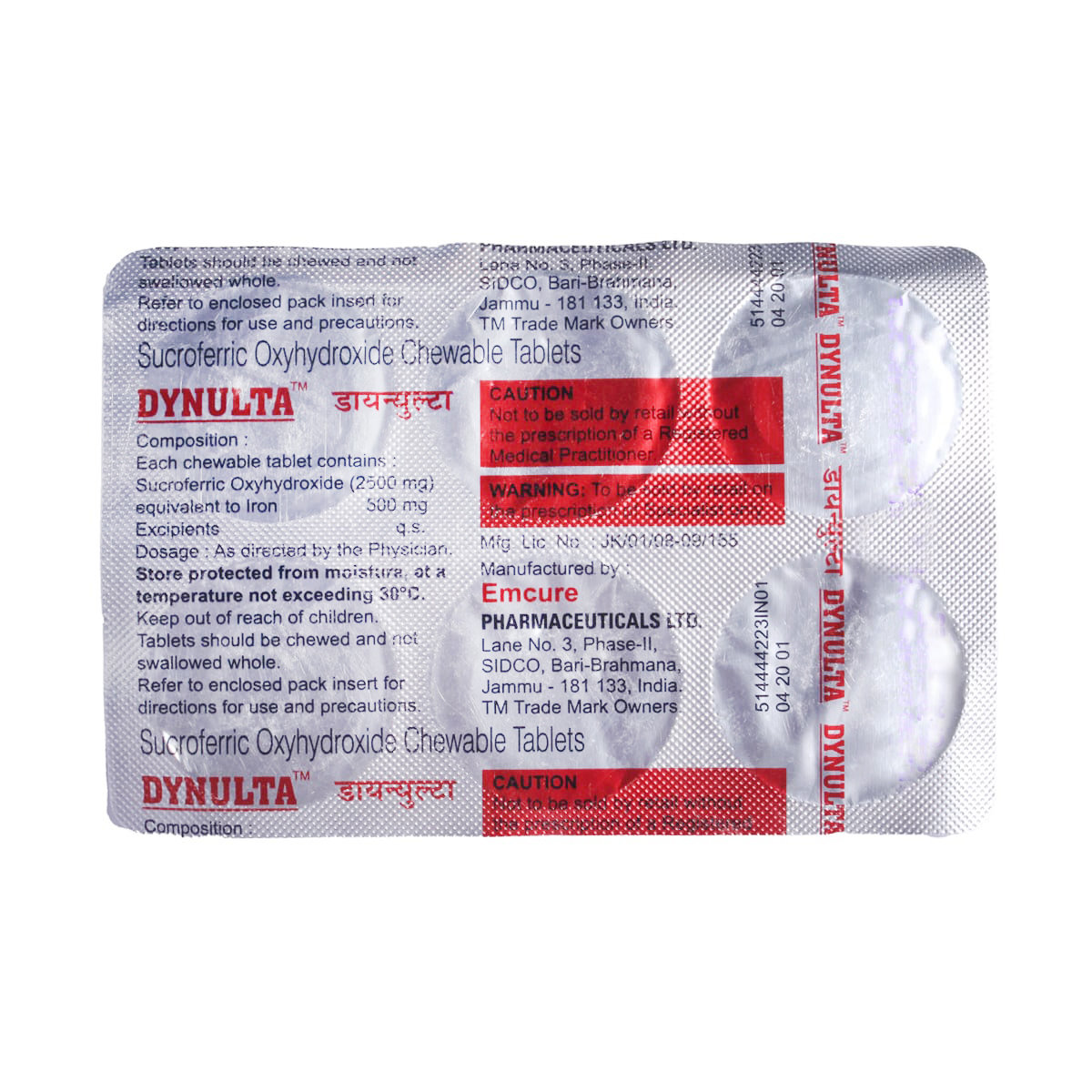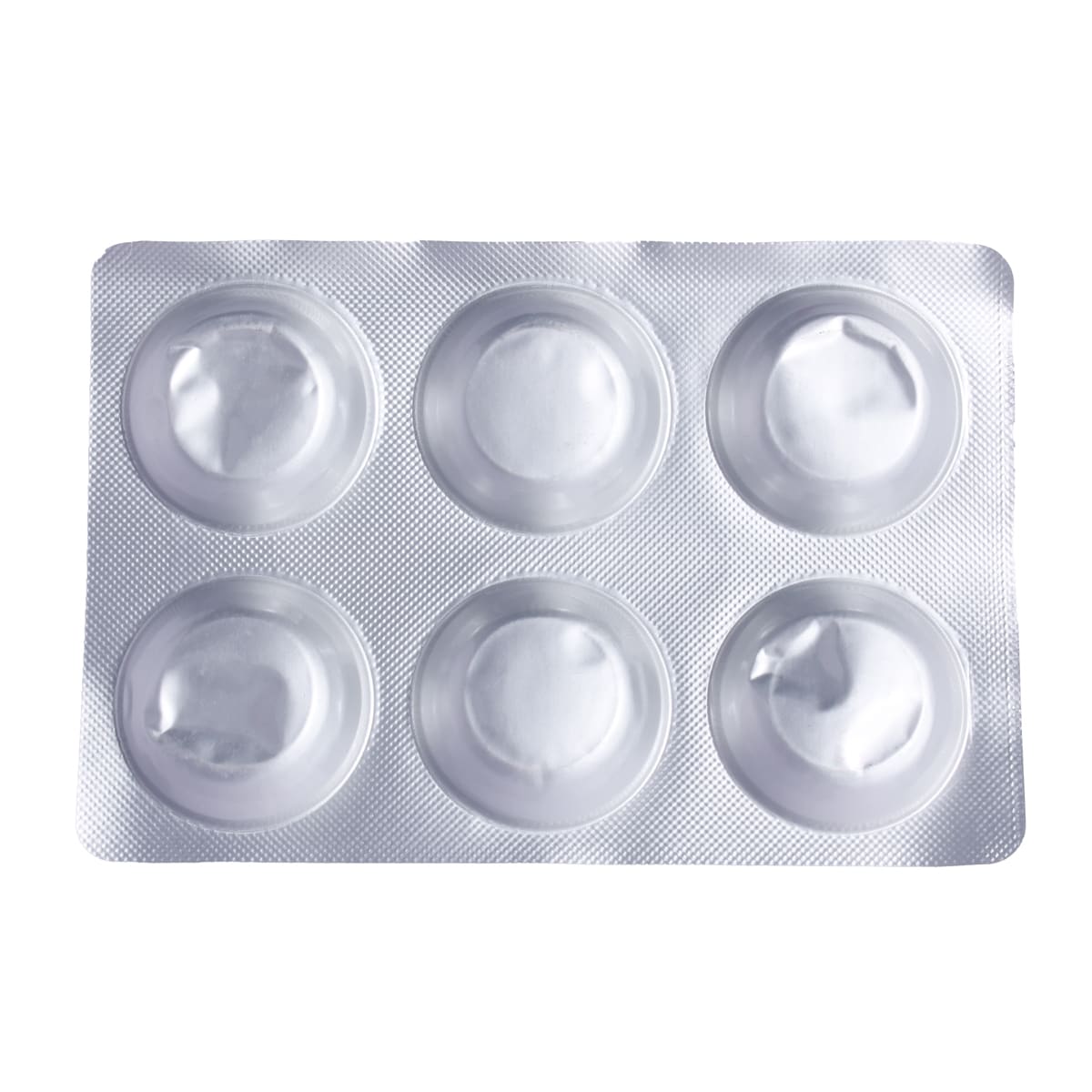Dynulta Tablet


MRP ₹316.5
(Inclusive of all Taxes)
₹38.0 Cashback (12%)
know your delivery time
Provide Delivery Location
Composition :
Manufacturer/Marketer :
Consume Type :
Expires on or after :
Return Policy :

Secure Payment

Trusted by 8 Crore Indians

Genuine Products
Therapeutic Class
Country of origin
Manufacturer/Marketer address
Author Details
We provide you with authentic, trustworthy and relevant information
Disclaimer
Alcohol
Safe if prescribed
It is not recommended to drink alcohol while taking Dynulta Tablet because it may cause unpleasant side effects.
Pregnancy
Consult your doctor
Please seek advice from a healthcare professional. There are no adequate and well-controlled studies on pregnant women. Your doctor will prescribe only if the benefits outweigh the risks.
Breast Feeding
Consult your doctor
Consult your healthcare professional as there is no substantial research yet on the use of Dynulta Tablet in breastfeeding/nursing mothers.
Driving
Safe if prescribed
It is unknown whether Dynulta Tablet affects driving ability. Do not drive or operate machinery if you have any symptoms that impair your ability to concentrate or react.
Liver
Consult your doctor
Consult your doctor if you have liver problems. Your doctor will prescribe only if the benefits outweigh the risks.
Kidney
Consult your doctor
Consult your doctor if you have kidney problems.
Children
Safe if prescribed
The safety and efficacy of Dynulta Tablet in children below 2years have not been established.
About Dynulta Tablet
Dynulta Tablet belongs to the class of medications called mineral supplements indicated for controlling serum phosphorus levels in adult chronic kidney disease patients on haemodialysis or peritoneal dialysis.
Dynulta Tablet contains 'sucroferric oxyhydroxide'. It helps to lower phosphate levels in the blood and prevents complications caused by high phosphate levels in the blood, especially in dialysis patients who are unable to eliminate excess phosphate levels.
Dynulta Tablet should be taken as prescribed by your doctor. Dynulta Tablet can cause side effects such as diarrhoea, nausea, vomiting, constipation, and indigestion in some cases. These side effects are not universal and vary from person to person. Please consult your doctor if you experience any of the side effects persistently.
Do not take Dynulta Tablet if you are allergic to any of the contents, if you have/had haemochromatosis, or iron overload disorder. Before using this medication, inform your doctor of any medical issues you may have. Consult your doctor if you are pregnant or breastfeeding. The safety and efficacy of Dynulta Tablet in children blow 2years have not been established.
Uses of Dynulta Tablet
Medicinal Benefits Mweb
Key Benefits
Dynulta Tablet contains sucroferric oxyhydroxide indicated for controlling serum phosphorus levels in adult chronic kidney disease patients on haemodialysis or peritoneal dialysis. Dynulta Tablet helps to lower phosphate levels in the blood and prevents issues caused by high phosphate levels in the blood, especially in dialysis patients who are unable to get rid of excess phosphate levels.
Directions for Use
Side Effects of Dynulta Tablet
- Diarrhoea
- Nausea
- Vomiting
- Constipation
- Indigestion
Drug Warnings
Do not take Dynulta Tablet if you are allergic to any of the contents, if you have/had haemochromatosis, or iron overload disorder. Notify your doctor if you have/had inflammation of the peritoneum, stomach/intestinal surgery, stomach and/or liver problems. Before using this medication, tell your doctor about any health complications you have. Inform your doctor if you are taking any other medications. Consult your doctor if you are pregnant or nursing.
Drug-Drug Interactions
Drug-Drug Interactions
Login/Sign Up
Drug-Food Interactions
Drug-Food Interactions
Login/Sign Up
Drug-Diseases Interactions
Drug-Diseases Interactions
Login/Sign Up
Drug-Drug Interactions Checker List
- ERDAFITINIB
- DOXYCYCLINE
- LEVOTHYROXINE
Habit Forming
Special Advise
- To rule out the possibility of electrolyte imbalance, electrolyte levels should be monitored on a regular basis.
Diet & Lifestyle Advise
- Reduce the amount of phosphorus in your foods and beverages.
- Eat low phosphorus foods such as sourdough bread, corn or rice cereals, cream of wheat, unsalted popcorn and some light-coloured sodas & lemonade.
- Avoid high phosphorus foods, including bran cereals, oatmeal, nuts, sunflower seeds, whole-grain bread and dark-coloured colas.

Have a query?
Buy best Genito Urinary products by
Cipla Ltd
Sun Pharmaceutical Industries Ltd
Intas Pharmaceuticals Ltd
Ipca Laboratories Ltd
Leeford Healthcare Ltd
Dr Reddy's Laboratories Ltd
Lupin Ltd
Alkem Laboratories Ltd
Msn Laboratories Pvt Ltd
Zydus Healthcare Ltd
Demorbus India Pvt Ltd
Mankind Pharma Pvt Ltd
Overseas Health Care Pvt Ltd
RPG Life Sciences Ltd
La Renon Healthcare Pvt Ltd
Alembic Pharmaceuticals Ltd
Corona Remedies Pvt Ltd
Macleods Pharmaceuticals Ltd
Aristo Pharmaceuticals Pvt Ltd
Fourrts India Laboratories Pvt Ltd
Tas Med India Pvt Ltd
Micro Labs Ltd
Samarth Life Sciences Pvt Ltd
Zydus Cadila
Emcure Pharmaceuticals Ltd
Hetero Drugs Ltd
Ignyx Pharmaceuticals
Renspur Healthcare Pvt Ltd
Steris Healthcare
Alniche Life Sciences Pvt Ltd
Septalyst Lifesciences Pvt Ltd
Ajanta Pharma Ltd
Elder Pharmaceuticals Ltd
Merynova Life Sciences India Pvt Ltd
Tppl Pharmaceuticals Pvt Ltd
Walter Bushnell
Aar Ess Remedies Pvt Ltd
Knoll Healthcare Pvt Ltd
Lividus Pharmaceuticals Pvt Ltd
Meditrex Pharma
Medrhans Pharmaceuticals Pvt Ltd
Neuten HealthCare
Redmed Medical Services
Talohsty Medmark Pvt Ltd
Zycris Healthcare
East West Pharma India Pvt Ltd
Globus Remedies Ltd
Golden Square Lab Pvt Ltd
Hetero Healthcare Pvt Ltd
Modi Mundipharma Pvt Ltd
Nephurocare Pharma Pvt Ltd
Pfizer Ltd
TTK Healthcare Ltd
Votary Laboratories (India) Ltd
Albus Healthcare Pvt Ltd
Delvin Formulations (P) Ltd
Indoco Remedies Ltd
Intra Life Pvt Ltd
Megma Healthcare Pvt Ltd
Morepen Laboratories Ltd
Qren Life Sciences Pvt Ltd
Steadfast MediShield Pvt Ltd
Unipark Biotech Pvt Ltd
Akumentis Healthcare Ltd
Biokindle Lifesciences Pvt Ltd
Calren Care Lifesciences Pvt Ltd
Chemo Biological Ltd
Chemo Healthcare Pvt Ltd
Euniche Life Sciences
Himeros Pharmaceuticals Pvt Ltd
Hospimax Healthcare Pvt Ltd
Kiosence Health Care Pvt Ltd
Lia Life Sciences Pvt Ltd
Panacea Biotec Ltd
Primus Remedies Pvt Ltd
Rencord Life Sciences Pvt Ltd
Shilpa Medicare Ltd
Stadmed Pvt Ltd
Abbott India Ltd
Ameya Pharmaceuticals & Chemicals Pvt Ltd
Ardent Life Sciences Pvt Ltd
Asterima Pharmaceuticals Pvt Ltd
Astrum Healthcare Pvt Ltd
Cadila Healthcare Ltd
De Renon
Fibovil Pharmaceuticals Pvt Ltd
Koye Pharmaceuticals Pvt Ltd
Linux Laboratories Pvt Ltd
MMC Healthcare Ltd
Neovae Biomedics Pvt Ltd
Olcare Laboratories Pvt Ltd
Oxygen Pharma Care Pvt Ltd
Prevego Healthcare & Research Pvt Ltd
Rene Lifescience
Sanzyme Pvt Ltd
Solis Ortus Remedies Pvt Ltd
Syndicate Life Sciences Pvt Ltd
Tycoon Pharmaceuticals Pvt Ltd
Vasu Organics Pvt Ltd
Walron Health Care Pvt Ltd
Recommended for a 30-day course: 10 Strips


_0.jpg?tr=q-85)
